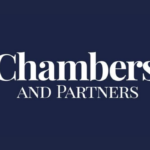Future Focussed
In the series of articles entitled, ‘Making law firms more profitable’ Richard Wyatt looks at three ways in which law firms can become more profitable. They are to:
- Increase fee earner numbers
- Increase profitability per fee earner
- Reduce overheads
Whilst each of the options improves profitability to a varying degree, Richard highlights that the second option, which is the increase in profitability per fee earner will bring the greatest improvement in net profit without incurring the extra cashflow risk from employing additional staff.
However, to achieve this it requires not only financial intent and prowess supported with a financial plan, but a great culture and management skills which will empower and support people to be profitable.
In this article, I show how we can achieve a culture of profitability and embed management skills which will help people within a firm to achieve targets set.
Create a Culture of Productivity
The secret to creating a culture where profitability thrives is not about being a relentless taskmaster, instead it requires the creation of an environment where all team members are motivated to be at their most productive, empowered, and able to achieve their best.
You will know yourself, if you have an end goal that you want to achieve, you are likely to put your energies into achieving it. It is exactly this philosophy which can be applied within the workplace. People need a reason and a purpose to be productive. Hence sharing the vision across all staff and bringing both context and understanding of the end goal means that you are more likely to empower and motivate people to achieve your end goal.
However, whilst it is imperative to make expectations clear, it is equally as important to create an environment where staff can achieve a higher level of productivity. This means a culture where limitations and distractions are minimised, and people are given the skills to be productive. This leads me onto my next point – training to increase productivity.
Training to Increase Productivity
There are three different aspects to consider when training to increase productivity and these are:
- Training people to have more productive work habits, for example using tools like the pomodoro technique which comprises breaking down tasks into short intervals, working power hours when you try to achieve a lot within an hour or experimenting with classical conditioning, a method which gives you a signal to know it is time to work – arriving at the office maybe.
- Training people to be effective in their role, for example, developing people’s ability to lead and manage others, training people to hold productive team meetings or giving them the skills to have a courageous conversation when productivity is low.
- Training on systems to increase productivity, for example, training on computer systems, finance, or time management systems. We often forget that people have different abilities and skillsets and assume everybody comes from the same starting point, but this is rarely the case. Conducting an organisational development needs analysis in advance of deciding what training to implement helps us to recognise where the differences in staff ability lie and will help us to support people in areas where they need further development.
Considering Process to Aid Productivity
Productivity and efficiency will improve when firms make their workflows and internal processes leaner.
Hence, reviewing processes to identify any barriers to productivity is a good starting point. This requires you to invite feedback from team members on potential challenges or barriers and requires an open mindset to change process or protocol where it is not working. The aim is to reach a position whereby workflows and internal processes are more efficient and thus allow people to be more productive.
To Conclude
If you take account of all these factors, you will ultimately kickstart profitability within your business, but you will also create a culture whereby motivated and empowered employees want to achieve for you and will utilise improved processes which will help you to achieve greater profitability. Your business will be in a stronger position. You will be able to meet tight deadlines and take on new clients; client value will improve, and you will be able to show your partners a more profitable balance sheet. A win for all concerned!
About the Author
Michelle Howard is a skilled consultant in strategic development. With over 25 years of extensive cross-sector experience in the UK, most recently at Executive Director level.
She has undertaken extensive consultancy work across areas of leadership and marketing, has a university associate position delivering professional programmes and has led and developed award-winning multi-partner projects recognised nationally for generating significant innovation and positive outcomes.
Experience gained across Legal 500 law firms, leadership consultancies, an innovation centre and public sector organisations in a range of challenging roles.
Specialities: Leadership and Management, Organisational Agility, Culture Change, High Performing Teams, Building a Coaching Culture, Partnership Development, Digital and Traditional Marketing.









